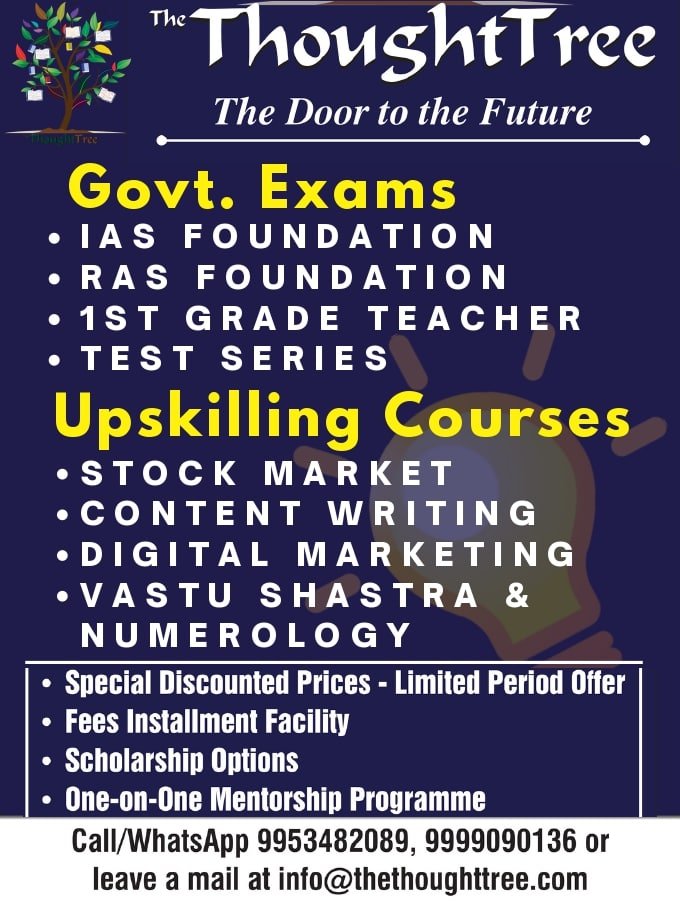Effective time management is crucial in preparing for the UPSC exams. It is known for being among the toughest competitive exams in India. Starting this tough journey, choosing the best IAS coaching in Delhi can really make a big difference. Such platforms offer not just structured learning materials but also impart essential time management techniques. Mastering time management enables aspirants to navigate through the expansive syllabus with efficiency, leaving no stone unturned.
Well-Planned Study Schedule:
Crafting a detailed study plan is key to tackling the broad UPSC syllabus. By dividing it into smaller, more digestible parts, this strategy promotes comprehensive coverage across all topics, simplifying what initially appears to be a formidable amount of content. This organized method aids in setting aside dedicated periods for revisiting material, a crucial yet often overlooked component of studying. For those struggling with self-discipline, enrolling in a reputable UPSC online coaching program could be beneficial.

Read: Alternative Career Options for UPSC Aspirants
Determining Priorities:
The act of prioritizing certain topics over others plays a vital role in UPSC exam prep. This involves discerning which subjects carry more weight and dedicating additional time to them. Such a focused approach is designed to maximize the efficacy of study sessions, concentrating efforts on areas with the potential for higher scores. Effective time management in this scenario means judiciously distributing one’s study efforts to reap the maximum benefits.
Additionally, gaining insight into the significance of various syllabus sections paves the way for a more focused study regimen. Identifying not just the essential topics but also gauging their complexity and the requisite time for mastery enables a balanced preparation. This strategy ensures a deep dive into vital subjects without overlooking the comprehensive scope required for the UPSC examination.
Stress Reduction Through Time Management:
Effective time management plays a key role in diminishing the stress associated with the comprehensive syllabus and strict deadlines characteristic of the UPSC exams. Establishing a detailed timetable that allocates adequate time to each subject, along with essential revision periods and mock exams, allows candidates to approach their studies with reduced anxiety. This organized strategy introduces a sense of structure and forward movement, transforming the overwhelming challenge of covering the entire syllabus into a more feasible task.
Moreover, the presence of a predefined plan aids candidates in concentrating better, minimizing the sense of panic that often arises from haphazard study patterns. Allocating time to every part of the syllabus ensures comprehensive coverage, laying the groundwork for a thorough preparation regime. Such deliberate planning not only boosts the efficiency of study sessions but also fosters a serene and focused mental state, which is vital for acing the UPSC exams.
Must Read: How to Prepare for Sociology Optional for UPSC? Perfect Strategy
Incorporating Breaks for Well-Being:
Building in regular pauses and self-care measures into the study schedule is essential to avoid burnout. Recognizing that optimal brain function requires rest is crucial. Through balanced time management, candidates can ensure they stay both mentally and physically well-prepared across their exam preparation span.
Maximizing Revision Efficiency:
Thorough revision is crucial for cementing knowledge, serving as an indispensable element in UPSC exam success. Skillful time management grants aspirants generous opportunities to review previously learned content. This reinforcement not only deepens their understanding but also improves recall abilities at crucial moments.
In addition, integrating frequent revision sessions into the study plan guarantees that no subject is overlooked. Regularly revisiting study material boosts comprehension and memory, simplifying the retrieval of information during the exam. Adopting this systematic approach to revision leverages study time more effectively, enhancing overall performance.
Utilizing Mock Tests for Improvement:
Dedicating specific intervals for engaging in mock tests and evaluating outcomes is instrumental in pinpointing both strengths and areas for enhancement. This technique allows aspirants to tailor their future study efforts towards polishing weaker areas, thereby optimizing the productivity of their study time.
Conclusion

To sum it up, mastering time management transforms the entire process of preparing for the UPSC exam. It’s not merely about getting through the syllabus; it’s about doing so in a way that minimizes stress. This strategy helps keep candidates driven and concentrated on their objectives. The key is not just in putting in the hours but in doing so intelligently. Adopting an effective time management strategy can significantly increase the chances of success in the UPSC exam. Discipline and motivation are your allies on this journey. Embrace them, and let your path to becoming an IAS officer reflect your commitment and strategic effort.





